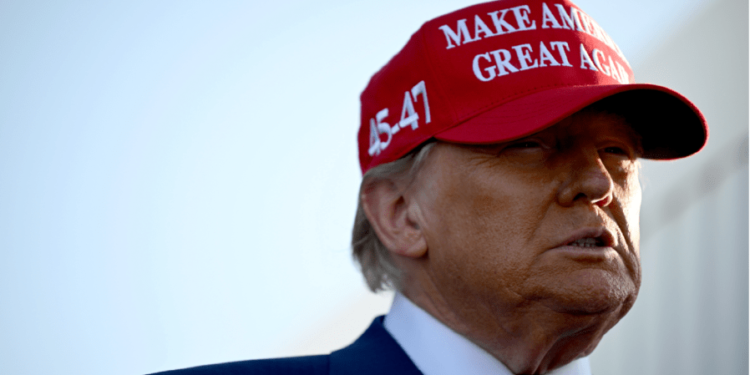
On Nov. 5, Americans hired Donald Trump to do three things: put more money into their pockets; lower prices for gas, groceries and rent and restore order at the southern border.
Trump was not hired to gut the Justice Department, abolish the FBI, pardon the Jan. 6 rioters, weaken our intelligence agencies, eliminate the Department of Education or “go wild on health.”
Trump’s initial nominations of Rep. Matt Gaetz (R-Fla.) for attorney general (now withdrawn), Pete Hesgeth for secretary of Defense, Tulsi Gabbard as director of national intelligence, Robert F. Kennedy Jr. as secretary of Health and Human Services, and Mehmet Oz as administrator of the Centers for Medicare and Medicaid Services go far beyond the directives he received from voters.
Instead of lending expertise to those departments, Trump is determined to exact revenge by gutting them. As Trump consigliere Steve Bannon says, “It ain’t morning in America.”
In 1967, social scientists Lloyd Free and Hadley Cantril explained that Americans were ideological conservatives who wanted to reduce the size of government, but programmatic liberals who did not want to cut Social Security and Medicare or eliminate education and environmental spending.
Vivek Ramaswamy, who is working with Elon Musk and his Department of Government Efficiency, says that Musk “doesn’t bring a chisel, he brings a chainsaw, and we’re going to be taking it to that bureaucracy.” Ramaswamy added, “It’s going to be a lot of fun.”
But chainsaws are not what the voters ordered. The “fun” will stop when they conclude that less government is very different from no government.
Trump is determined to overstep the instructions he received from the voters. In so doing, he is repeating a pattern that has plagued recent presidencies.
The twin examples of Bill Clinton and George W. Bush are illustrative.
In 1992, Bill Clinton was elected to improve economic conditions and lead the United States into a post-Cold War world. Campaigning as a New Democrat, Clinton rejected Franklin D. Roosevelt’s New Deal one-size-fits-all approach to big government.
But once installed in the Oval Office, Clinton put Hillary in charge of healthcare. Her expansive and complex plan was not what the voters had in mind.
Similarly, Clinton’s order allowing gays to serve in the military under the “don’t ask, don’t tell” policy also ran counter to what voters were willing to accept.
Finally, Clinton’s ban on assault weapons was viewed as an attack on the Second Amendment.
By 1994, voters wondered whether they had elected George McGovern instead of Bill Clinton. Using the slogan “God, guns and gays,” Newt Gingrich led his fellow Republicans to a resounding victory. For the first time since 1953, Republicans controlled both houses of Congress.
Assessing the outcome, Bill Clinton admitted voters sent him a message: “We just don’t like what we see when we watch Washington, and you haven’t done much about that.”
George W. Bush suffered a similar fate. In 2004, he won reelection on his promise to keep America safe following the Sept. 11, 2001, terrorist attacks on the homeland.
But flush with victory, Bush boasted, “I earned political capital in this campaign, and I intend to spend it.” He spent that capital (and more) with his unpopular proposal to partially privatize Social Security. Incurring immediate opposition, his plan never received a vote even though Republicans controlled both houses of Congress.
That failure, the response to Hurricane Katrina, and the quagmire of the Iraq War led to a backlash in the 2006 midterm elections. Democrats were put back in charge on Capitol Hill, and Rep. Nancy Pelosi (D-Calif.) began her long tenure as House Speaker. A humbled George W. Bush called the results “a thumping.”
There is something about the presidency that causes its victors to overreach beyond what the voters want. The late George Reedy, who was Lyndon B. Johnson’s press secretary, wrote in “The Twilight of the Presidency” that a state of euphoria envelops every president-elect when “caution, introspection, and humility are most needed.”
Winning the presidency is a heady experience. The victor sits atop the political world as their White Houses, as Reedy wrote, resemble a king’s court. Suddenly emboldened, these newly minted Chief Magistrates want to exercise vast powers beyond those voters wished to confer with few around to tell them “no.”
Writing in The New Yorker after John F. Kennedy’s 1960 win, Richard Rovere perceptively noted that the “sovereign people” had given Kennedy “a victory without a verdict and a majority without a mandate.”
A humble Kennedy understood the fragility of his political situation. When liberal Democrats sought his backing for progressive social programs, he would remind them that he had not won a mandate and needed to be reelected first.
Trump will never face the sovereign voters again. Lacking any such accountability makes it even more likely that those inside the Trump White House will treat its occupant, as Reedy once explained, “with all of the reverence of a monarch.”
Humility is not a personal characteristic associated with either monarchs or Trump. And presidents with outsized egos have caused more than one administration to end in failure.
Even before Trump renews his promise to “preserve, protect, and defend the Constitution of the United States,” the twilight of his presidency is already visible on the horizon.
Steve Bannon is right: “It ain’t morning in America.”
Having won a hard-fought victory, Trump is quickly squandering it.
John Kenneth White (johnkennethwhite.com) is a professor emeritus at The Catholic University of America. His latest book is “Grand Old Unraveling: The Republican Party, Donald Trump, and the Rise of Authoritarianism.”






